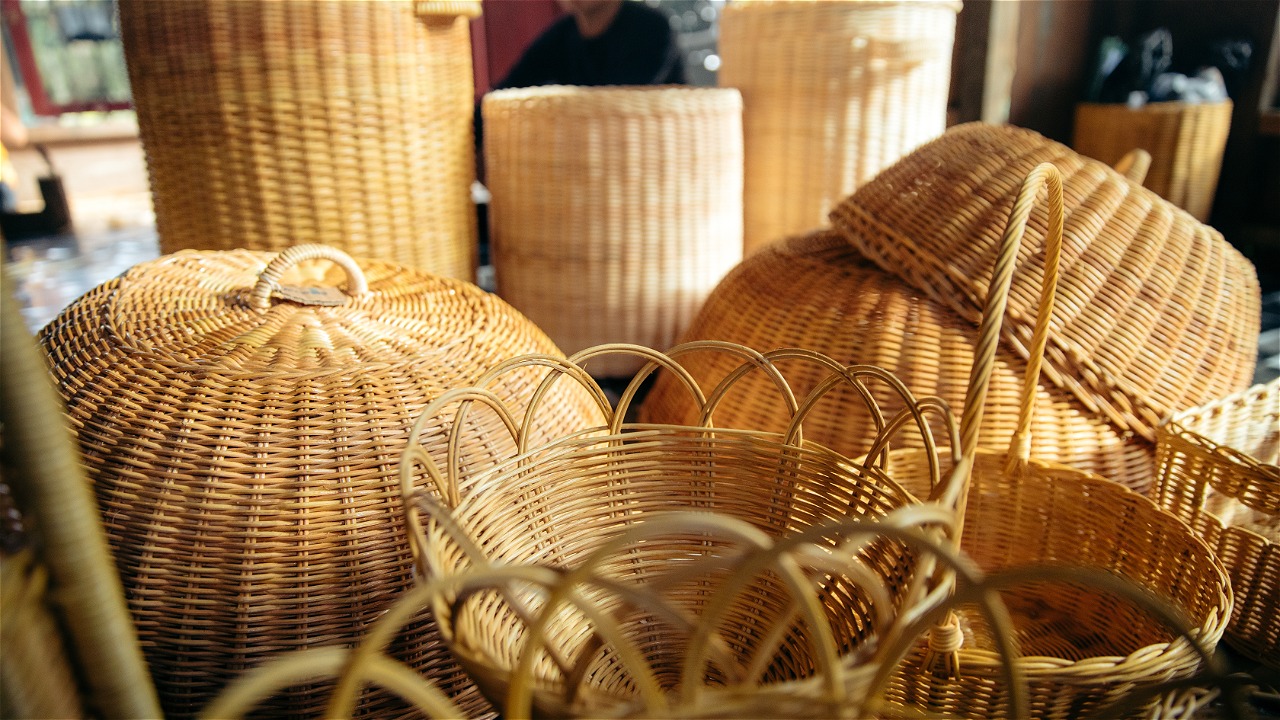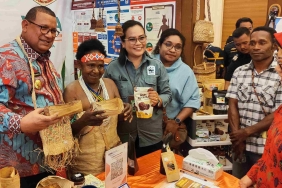NURTURING PASSION THROUGH FURNITURE MAKING TRAINING KSU MO MAKE UNAF
By: Paulus Robert Obinaru (Forest Officer Site Papua WWF-Indonesia)
For some people, waiting is boring. Maybe that's what the members of KSU-MMU, which stands for Koperasi Serba Usaha - Mo Make Unaf, one of WWF-Indonesia's assistants, also feel. KSU, which has been legally established since (23/11/2009) ago, received assistance in the form of a community logging program (assistance for indigenous peoples who manage forests in their customary areas by prioritizing the principle of ecosystem sustainability).
Various efforts have been made, ranging from mapping high conservation value forests to strengthening the capacity and capability of this cooperative. KSU-MMU's production area of 4,500 hectares has been legalized through the decision of Timber Forest Product Management Business License (IUPHHK) in natural forest, No.91 of 2011 by the Head of the Papua Province Forestry Service. Unfortunately, KSU-MMU's joy received quite heavy obstacles and challenges. Licensing regulations at the Ministry of Forestry became a long and serious polemic to be faced for WWF and KSU-MMU itself. Forestry rules and regulations at the central level make KSU-MMU only able to beat their chest and in their minds crossed, "When will our license be issued?".
Time goes on, the spirit continues to be pumped for KSU-MMU's commitment. Fresh air began to be felt in April 2016 in the KSU-MMU basecamp area of Kampung Wayau, Anim Ha District. The spirit began to be pumped through the sharing of furniture training experience by the two KSU-MMU members who shared with their fellow colleagues who were also assisted by WWF-Indonesia Merauke office who facilitated the process of their activities.
Roby and Frengki, that is the nickname for the two KSU-MMU members. Their hard life background spurred them to be diligent in their work. One of them is learning the technique of making tables and chairs. Both of them are young people who have been facilitated by WWF to take part in the furniture training at the Jayapura Province Vocational Training Center (BLK). Through the knowledge that has been received, they both also want to share the knowledge with other colleagues.
The first day of table and chair making training was attended by seven KSU-MMU members. Process after process began to be carried out by Frengki and Roby while other friends watched. In between the two of them preparing the size of the wood and cutting, Frengki was seen some time glancing at the writing in his notebook while participating in the training of making furniture.
While paying attention, other friends also began to hold the wood and tools that WWF had prepared to support their training. One by one, KSU-MMU members asked Roby and Frengki about the names of the tools and their functions. Each of them tried to hearth the thickness of the board and tried to use the scraping machine. They were also taught how to produce boards that are as thick as requested as well as the measurement of boards and beams before cutting and leveling.
The training lasted for eight days. The results of the sharing of experience and knowledge between fellow KSU-MMU members produced four chairs, one dining table, and one television table with a quality that can be said to be a beginner. But their perseverance can be thumbs up.
The series of experience and knowledge sharing activities by Roby and Frengki bore sweet fruit, namely fellow KSU-MMU members involved were able and understood in using equipment that was new to them. This training activity for KSU-MMU members is an effort of WWF-Indonesia Papua Program to improve skills, management, and utilization of forest products that can bring economic income to the families of KSU-MMU members.
In addition, the training and sharing activities became a reflection in the journey of assisting indigenous community forest managers in Merauke to be more optimistic that the training activities will foster enthusiasm and cohesiveness in uniting perceptions to build a better life for indigenous peoples through sustainable utilization and management of customary forests. They also have a motto that is always echoed by their leaders, namely, "Never leave tears for our children and grandchildren, but leave springs for them!"





